Table of Contents
Understanding macronutrients—protein, carbohydrates, and fats—is essential for a healthy diet. These three key nutrients fuel your body, support muscle growth, and regulate vital processes.
However, balancing them correctly can be tricky. If you’re not mindful, you might be consuming the wrong types or amounts, which can lead to health issues.
In this article, we’ll dive deep into the importance of macronutrients and how to balance them for optimal health.
Introduction

Macronutrients are the nutrients your body needs in large amounts. They provide the energy required for daily activities and bodily functions. The three main macronutrients are protein, carbohydrates, and fats. Each plays a unique role in maintaining your health.
Understanding these roles and how much of each nutrient you need can help you create a balanced diet that supports your overall well-being.
Unlike vitamins and minerals, which are needed in smaller amounts (micronutrients), macronutrients are required in larger quantities. They are the building blocks of a healthy diet, and knowing how to balance them can have a profound impact on your health.
The key is not just in consuming these macronutrients but in understanding the right types and quantities that fit your lifestyle and health goals.
Definition of Macronutrients

Macronutrients are the primary sources of calories in your diet. Calories measure the energy your body needs to function. Each macronutrient provides a specific amount of energy:
- Protein: 4 calories per gram
- Carbohydrates: 4 calories per gram
- Fats: 9 calories per gram
These nutrients are essential because they are involved in almost every process in the body, from building and repairing tissues to providing energy.
Understanding how these macronutrients work together is crucial. For example, while protein is often highlighted for muscle building, it also plays a critical role in other bodily functions, such as enzyme production and immune support.
Similarly, carbohydrates are not just about energy; they also influence brain function and mood. Fats, often misunderstood, are necessary for hormone production and nutrient absorption.
Importance of Macronutrients for Overall Health
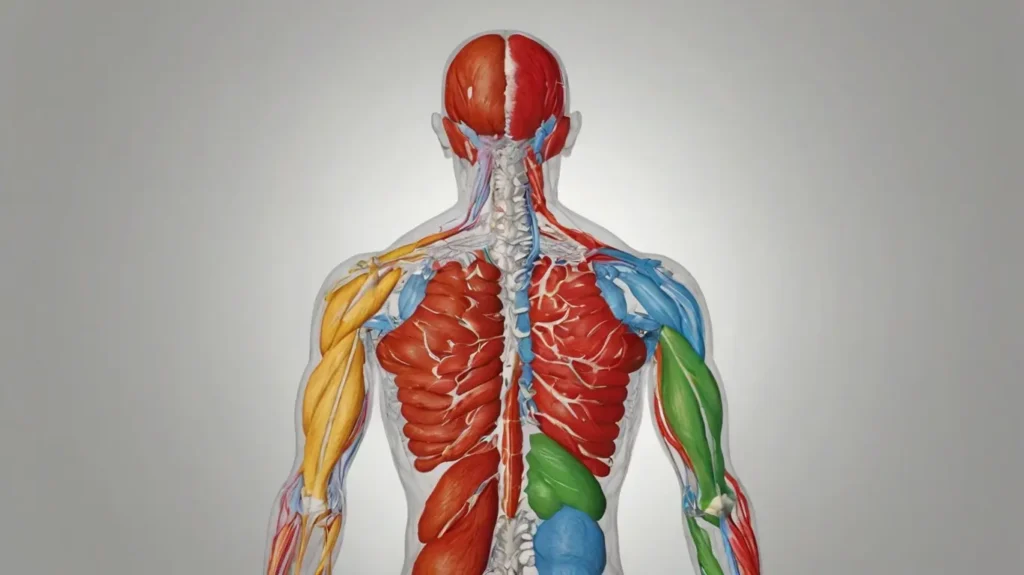
Each macronutrient has a specific role. Protein supports muscle building, tissue repair, and immune function. Carbohydrates provide quick energy and are crucial for brain function.
Fats help absorb vitamins, cushion organs, and support cell function. An imbalance in any of these can affect your metabolism, weight management, and overall health.
For instance, a diet too high in carbohydrates, especially simple carbs, can lead to weight gain and blood sugar issues. On the other hand, a diet lacking in protein can result in muscle loss, weakened immunity, and slower recovery from injuries. Insufficient fat intake can impact hormone balance, skin health, and the absorption of essential vitamins.
Balancing these macronutrients according to your individual needs is key to achieving optimal health. This means not only considering the quantity but also the quality of the macronutrients in your diet.
Whole, minimally processed foods tend to offer a better nutrient profile compared to processed foods, which may be high in unhealthy fats, sugars, and empty calories.
Protein

Functions of Protein

Protein is made up of amino acids, which are the building blocks of your body. It’s involved in muscle growth, tissue repair, and the production of enzymes and hormones. Protein is also vital for your immune system, helping your body fight off infections and heal wounds.
Amino acids, the components of protein, are classified into essential and non-essential amino acids. Essential amino acids cannot be produced by the body and must be obtained through diet. Non-essential amino acids can be synthesized by the body but are still important for various bodily functions.
In addition to muscle repair and growth, protein plays a role in:
- Enzyme production: Enzymes are proteins that speed up chemical reactions in the body, such as digestion.
- Hormone production: Hormones like insulin and growth hormone are proteins that regulate bodily functions.
- Immune response: Antibodies are proteins that help fight off infections and foreign invaders.
Types of Protein

There are two main types of protein:
- Complete Proteins: These contain all nine essential amino acids your body cannot produce on its own. Animal products like meat, fish, eggs, and dairy are complete proteins.
- Incomplete Proteins: These lack one or more essential amino acids. Most plant-based proteins, such as beans, nuts, and grains, are incomplete, but you can combine them to get all the essential amino acids.
For those following a plant-based diet, it’s important to consume a variety of protein sources to ensure you get all the essential amino acids. For example, pairing rice with beans or hummus with whole-grain bread can provide a complete protein profile.
Another consideration is the digestibility and bioavailability of protein sources. Animal proteins are generally more easily digested and absorbed by the body compared to plant proteins. However, plant proteins offer other benefits, such as fiber, antioxidants, and lower saturated fat content.
Recommended Daily Intake
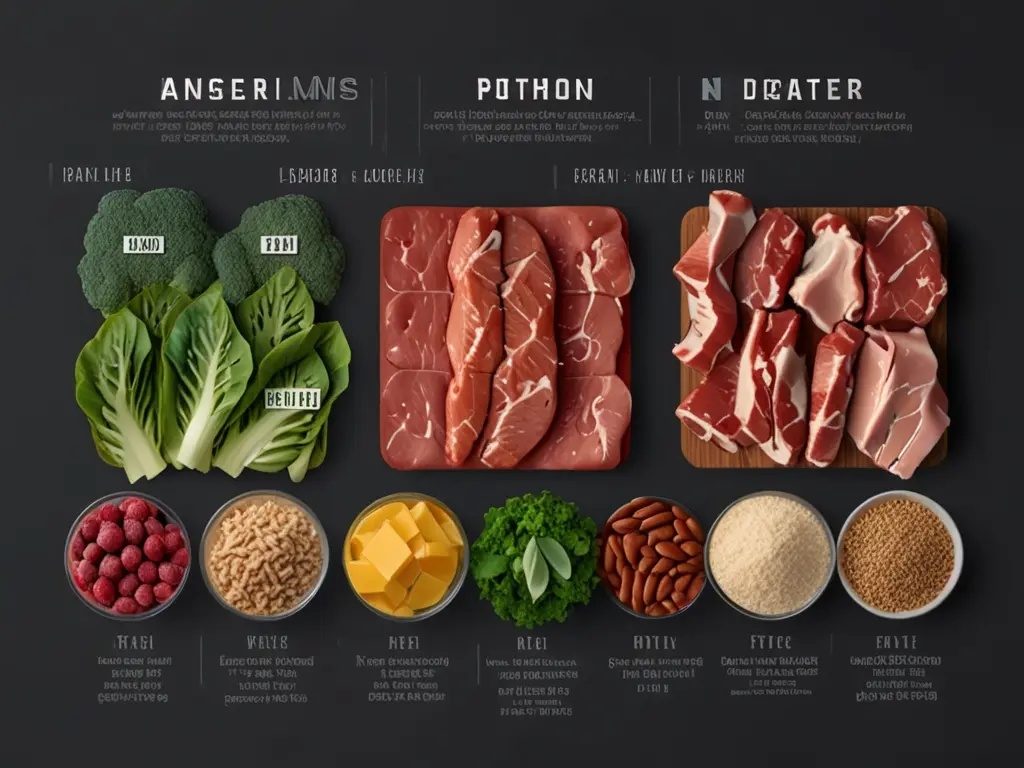
The recommended daily intake (RDI) for protein varies based on age, gender, and activity level. On average, it’s suggested that adults consume 0.8 grams of protein per kilogram of body weight.
For someone weighing 70 kg (about 154 pounds), this would be 56 grams of protein per day. Athletes or those involved in heavy physical activity may need more to support muscle repair and growth.
It’s also important to distribute protein intake throughout the day. Consuming protein-rich foods at each meal can help maintain muscle mass and improve satiety, which can aid in weight management.
For example, having eggs or Greek yogurt for breakfast, chicken or tofu for lunch, and fish or lentils for dinner can help meet your protein needs.
Carbohydrates

Functions of Carbohydrates
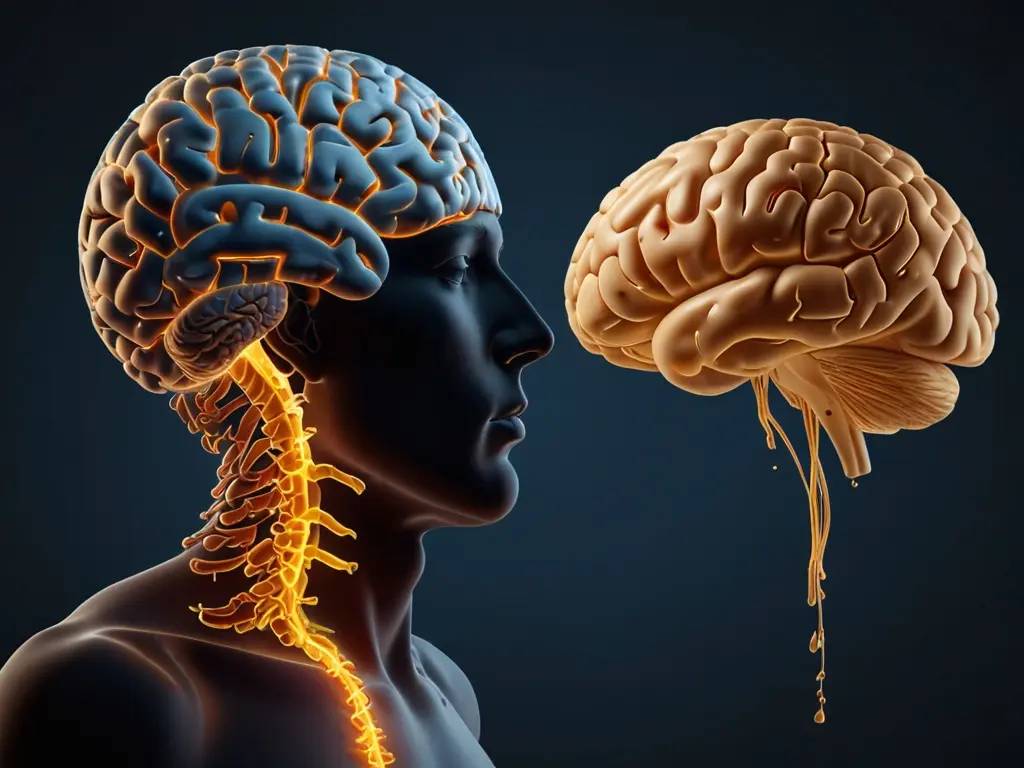
Carbohydrates are your body’s primary source of energy. They break down into glucose, which fuels your brain, muscles, and other organs. Without enough carbohydrates, your body may start breaking down proteins for energy, which can be detrimental to muscle mass and overall health.
Carbohydrates also play a role in sparing protein for its primary functions, such as muscle repair and enzyme production. Additionally, they are important for:
- Brain function: Glucose is the brain’s preferred source of energy. Adequate carbohydrate intake supports cognitive functions like concentration and memory.
- Mood regulation: Carbohydrates influence the production of serotonin, a neurotransmitter that helps regulate mood and sleep.
- Digestive health: Complex carbohydrates, particularly those high in fiber, support a healthy digestive system by promoting regular bowel movements and feeding beneficial gut bacteria.
Types of Carbohydrates

Carbohydrates are categorized into two main types:
- Simple Carbohydrates: These are sugars that provide quick energy but can cause rapid spikes in blood sugar. Examples include fruits, honey, and table sugar.
- Complex Carbohydrates: These are found in foods like whole grains, legumes, and vegetables. They provide sustained energy and are richer in fiber, which aids digestion and helps maintain stable blood sugar levels.
It’s important to focus on the quality of carbohydrates you consume. While simple carbohydrates provide quick energy, they often come with a rapid rise and fall in blood sugar levels, leading to energy crashes and cravings.
Complex carbohydrates, on the other hand, provide a slower and more stable release of energy, helping to keep you full and energized throughout the day.
Examples of complex carbohydrates include:
- Whole grains: Brown rice, quinoa, oats, and whole wheat products
- Legumes: Beans, lentils, and chickpeas
- Vegetables: Sweet potatoes, carrots, and leafy greens
Recommended Daily Intake

The RDI for carbohydrates is about 45-65% of your total daily calories. For someone consuming 2,000 calories a day, this translates to about 225-325 grams of carbohydrates.
It’s advisable to focus on complex carbohydrates for their sustained energy release and nutritional benefits.
If you’re managing blood sugar levels, such as in diabetes, it’s important to monitor the type and amount of carbohydrates you consume.
Choosing low-glycemic index foods, which have a slower impact on blood sugar levels, can help manage glucose levels more effectively.
Fats

Functions of Fats
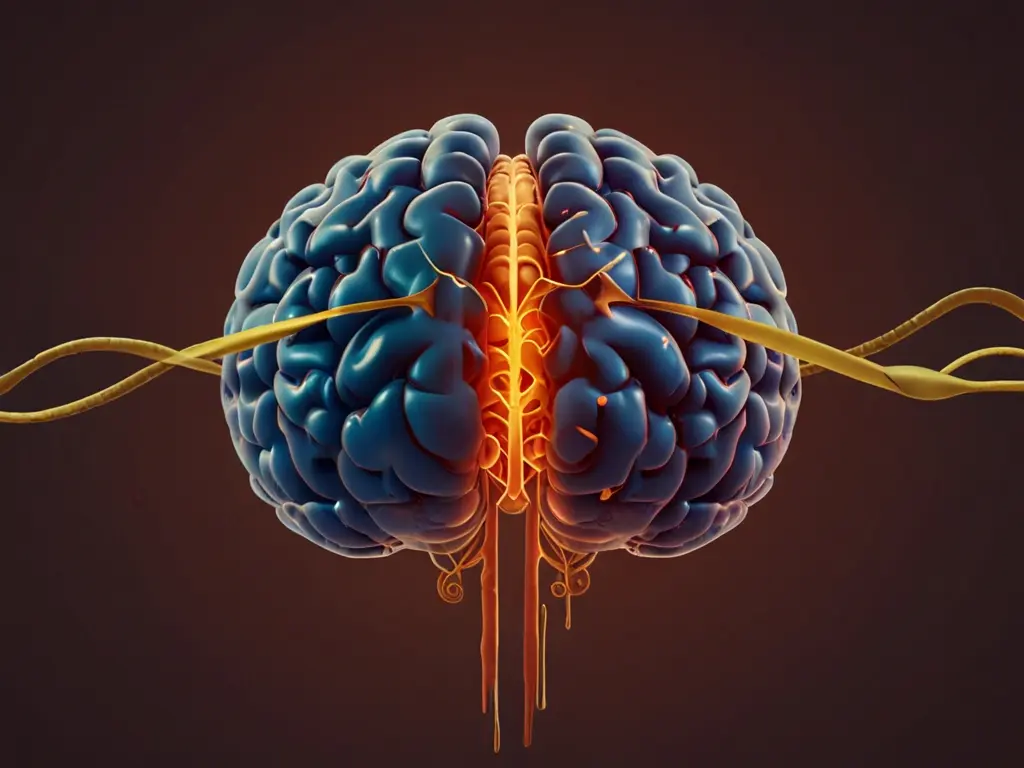
Fats are essential for absorbing fat-soluble vitamins (A, D, E, and K), providing energy, and protecting your organs. They also play a critical role in brain health, hormone production, and maintaining cell structure.
Fats are involved in several key processes, including:
- Cell membrane structure: Fats help maintain the integrity and fluidity of cell membranes.
- Hormone production: Fats are necessary for the production of hormones, including sex hormones like estrogen and testosterone.
- Inflammation regulation: Certain fats, such as omega-3 fatty acids, have anti-inflammatory properties and can help reduce chronic inflammation in the body.
Types of Fats

Fats can be classified into several types:
- Saturated Fats: Found in animal products and some plant oils, these fats can raise LDL (bad) cholesterol levels if consumed in excess. They should be limited in your diet.
- Unsaturated Fats: These are healthier fats found in fish, nuts, seeds, and plant oils. They can help reduce LDL cholesterol and are beneficial for heart health.
- Trans Fats: Often found in processed foods, trans fats can increase your risk of heart disease and should be avoided as much as possible.
Unsaturated fats can be further divided into monounsaturated and polyunsaturated fats:
- Monounsaturated Fats: Found in olive oil, avocados, and certain nuts, these fats can improve cholesterol levels and support heart health.
- Polyunsaturated Fats: These include omega-3 and omega-6 fatty acids, which are essential fats that your body cannot produce on its own. Omega-3 fatty acids, found in fatty fish like salmon, flaxseeds, and walnuts, have powerful anti-inflammatory properties and are crucial for brain health, heart health, and reducing the risk of chronic diseases. Omega-6 fatty acids, found in vegetable oils like sunflower and corn oil, also play a role in brain function and normal growth and development. However, it’s important to maintain a balance between omega-3 and omega-6 intake, as an imbalance (with too much omega-6 and too little omega-3) can contribute to inflammation.
In general, the Western diet tends to be higher in omega-6 fatty acids and lower in omega-3s, which can disrupt the balance and potentially lead to increased inflammation and associated health risks.
To correct this imbalance, incorporating more omega-3-rich foods and being mindful of omega-6 sources is recommended.
Recommended Daily Intake
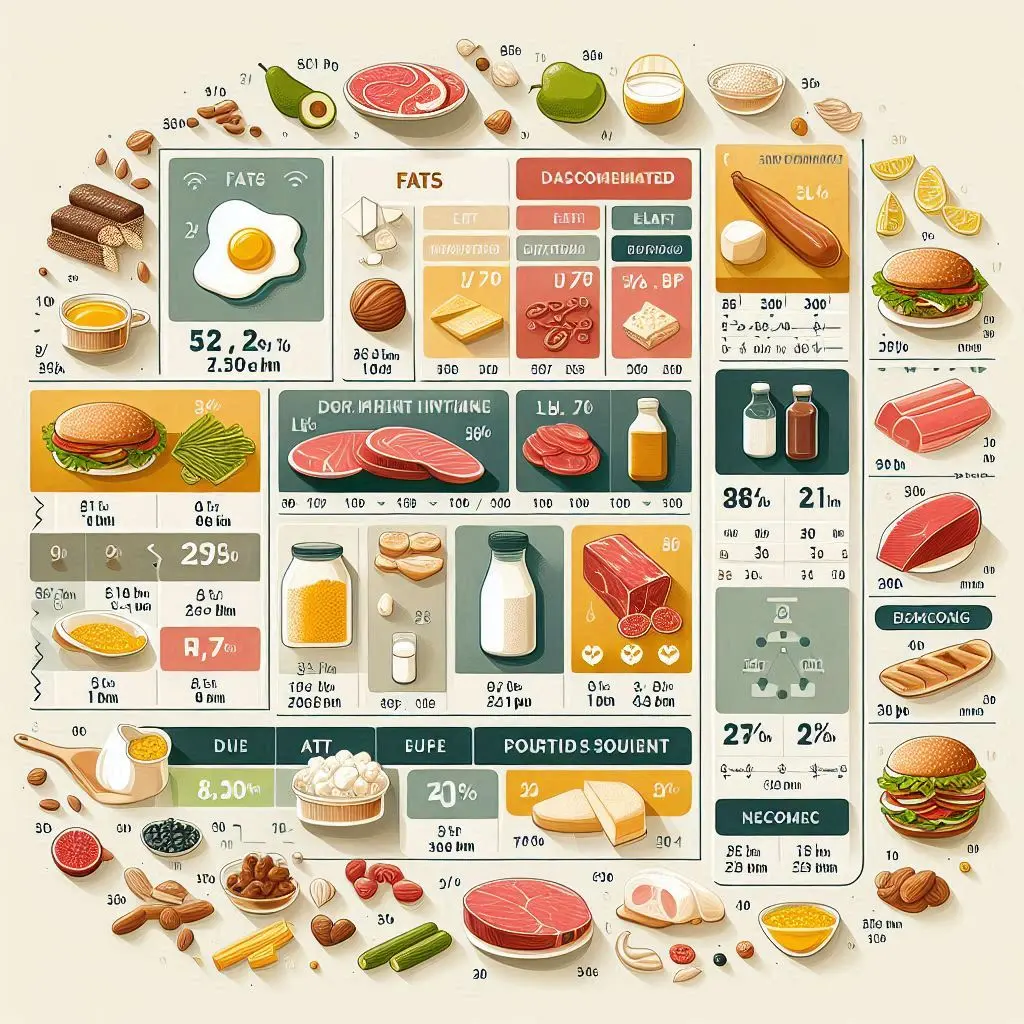
The recommended daily intake (RDI) for fats is about 20-35% of your total daily calories. For someone on a 2,000-calorie diet, this translates to about 44-78 grams of fat per day.
It’s advisable to focus on the quality of fats rather than just the quantity. Prioritize unsaturated fats, especially omega-3 fatty acids, while minimizing the intake of saturated and trans fats.
Here’s a breakdown of how to incorporate healthy fats into your diet:
- Use olive oil or avocado oil for cooking instead of butter or margarine.
- Add nuts and seeds to your meals for a boost of healthy fats and protein.
- Include fatty fish in your diet at least twice a week to increase your omega-3 intake.
- Limit processed foods that contain trans fats, often listed as “partially hydrogenated oils” on ingredient labels.
Balancing Macronutrients

Creating a Balanced Diet

A balanced diet involves getting the right amounts of each macronutrient based on your individual needs. This balance is not one-size-fits-all; it varies depending on factors like age, gender, activity level, and health goals.
A balanced diet should provide enough energy to support your daily activities while ensuring that your body gets the nutrients it needs for optimal function.
Here are some general guidelines for creating a balanced diet:
- Protein: Aim for 10-35% of your daily calories from protein, depending on your activity level and goals. Higher protein intake is beneficial for muscle maintenance, weight loss, and satiety.
- Carbohydrates: Target 45-65% of your daily calories from carbohydrates, with an emphasis on complex carbohydrates like whole grains, vegetables, and legumes. These provide sustained energy and support digestive health.
- Fats: Allocate 20-35% of your daily calories to fats, focusing on unsaturated fats from sources like fish, nuts, seeds, and plant oils.
Factors Influencing Macronutrient Needs

Several factors can influence your macronutrient needs, including:
- Age: As you age, your body’s metabolism naturally slows down, which may require adjustments in your macronutrient intake. For example, older adults may need to increase their protein intake to prevent muscle loss and support bone health.
- Activity Level: Your level of physical activity greatly impacts your macronutrient requirements. Athletes or those with physically demanding jobs typically need more carbohydrates for energy and more protein for muscle repair. In contrast, sedentary individuals may need to adjust their macronutrient intake to avoid excess calorie consumption.
- Health Conditions: Certain health conditions can affect your macronutrient needs. For example, individuals with diabetes may need to monitor their carbohydrate intake more closely to manage blood sugar levels. Those with cardiovascular issues might focus on reducing saturated fats and increasing omega-3 intake for heart health.
- Body Composition Goals: Whether you aim to lose fat, build muscle, or maintain your current weight, your macronutrient ratios will differ. For fat loss, a higher protein intake with moderate carbohydrates and fats may be beneficial. For muscle gain, a higher calorie intake with increased protein and carbohydrates is often recommended.
Practical Tips for Balancing Macronutrients
Balancing macronutrients can seem daunting, but it’s easier when you incorporate a variety of whole foods into your diet. Here are some practical tips to help you achieve a balanced intake:
- Plan Your Meals: Start by planning your meals to include a balance of protein, carbohydrates, and fats. For example, a balanced breakfast might include eggs (protein), whole-grain toast (carbohydrates), and avocado (healthy fats).
- Snack Wisely: Choose snacks that provide a good mix of macronutrients. For instance, a handful of nuts (healthy fats and protein) with a piece of fruit (carbohydrates) can keep you energized and satisfied between meals.
- Watch Your Portions: Pay attention to portion sizes to ensure you’re not overeating one macronutrient at the expense of others. Using a food diary or an app can help track your intake and make adjustments as needed.
- Stay Hydrated: Don’t forget that hydration is a crucial part of a balanced diet. Water supports metabolism, digestion, and overall health. Aim to drink at least 8 cups of water daily, and more if you’re active.
- Experiment and Adjust: Everyone’s body responds differently to various macronutrient ratios. Don’t be afraid to experiment with different proportions to see what works best for you. You might find that you feel more energized with a higher protein intake or that you perform better with more carbohydrates.
Conclusion

Balancing your macronutrients is key to maintaining optimal health and achieving your fitness goals. By understanding the unique roles of protein, carbohydrates, and fats, and how to balance them in your diet, you can support your body’s needs and improve your overall well-being.
Remember, everyone’s macronutrient needs are different, and factors like age, activity level, and health conditions should be considered when determining the right balance for you.
Creating a balanced diet doesn’t have to be complicated—focus on whole, nutrient-dense foods and adjust your intake based on your individual needs.
If you’re unsure where to start, consider consulting with a nutritionist or dietitian who can help you tailor your macronutrient intake to your specific goals and lifestyle.
Keep researching, stay informed, and make adjustments as needed to ensure you’re eating the right macronutrients for your body.
In summary, by prioritizing a balanced intake of protein, carbohydrates, and fats, you’ll be well on your way to a healthier, more vibrant life.
Whether your goal is to lose weight, build muscle, or simply maintain good health, understanding and balancing your macronutrients is an essential step toward success.




